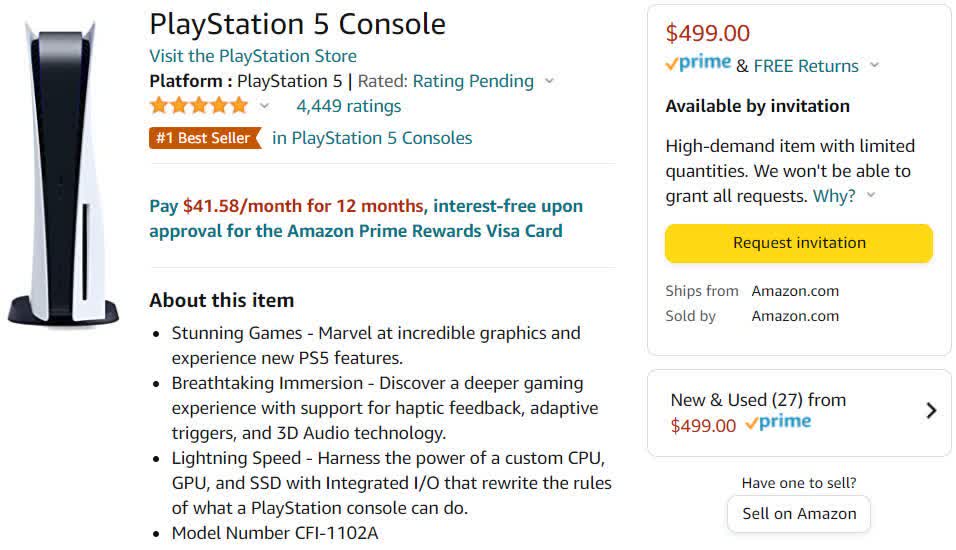Why it matters: A year and a half after the PlayStation 5 and Xbox Series consoles launched, bots still snatch them up whenever they appear online. Amazon has introduced a new strategy to combat the problem, which it will expand to other supply-constrained products.

Sony has used an invite-based system to sell PS5s online while thwarting bots and server congestion for a while now. This week, Amazon started employing something similar for Sony's latest console so "genuine customers" can secure them.
PlayStation 5 store pages on Amazon now feature an invitation button in place of "purchase." After customers click the invite request, Amazon will verify that the account isn't a bot by checking its purchase history and creation date. The company still can't guarantee a console for everyone or predict wait times, but lucky buyers will get an email with a link good for 72 hours. Getting the invite doesn't require a Prime subscription.
Currently, the invite system is only for buying a PlayStation 5 in the United States, but those looking for an Xbox Series system will be able to use it in the coming days. Eventually, Amazon will roll out the feature to users in other countries and expand it to include consoles and other high-demand items.
Other stores have their strategies for blocking bots, with Walmart seeing success soon after the PS5 and Xbox Series consoles launched. However, Best Buy's attempt to stop GPU scalpers with a $200 paywall backfired.
Although supplies of the new consoles have improved in recent months, Amazon shoppers will likely need to rely on the invite system for a good while. Sony still can't build quite enough PS5s to meet consumer demand. The root of the problem — the global chip shortage — could last into 2024, according to Intel and TSMC.
https://www.techspot.com/news/94806-invite-based-ordering-comes-amazon-starting-game-consoles.html
